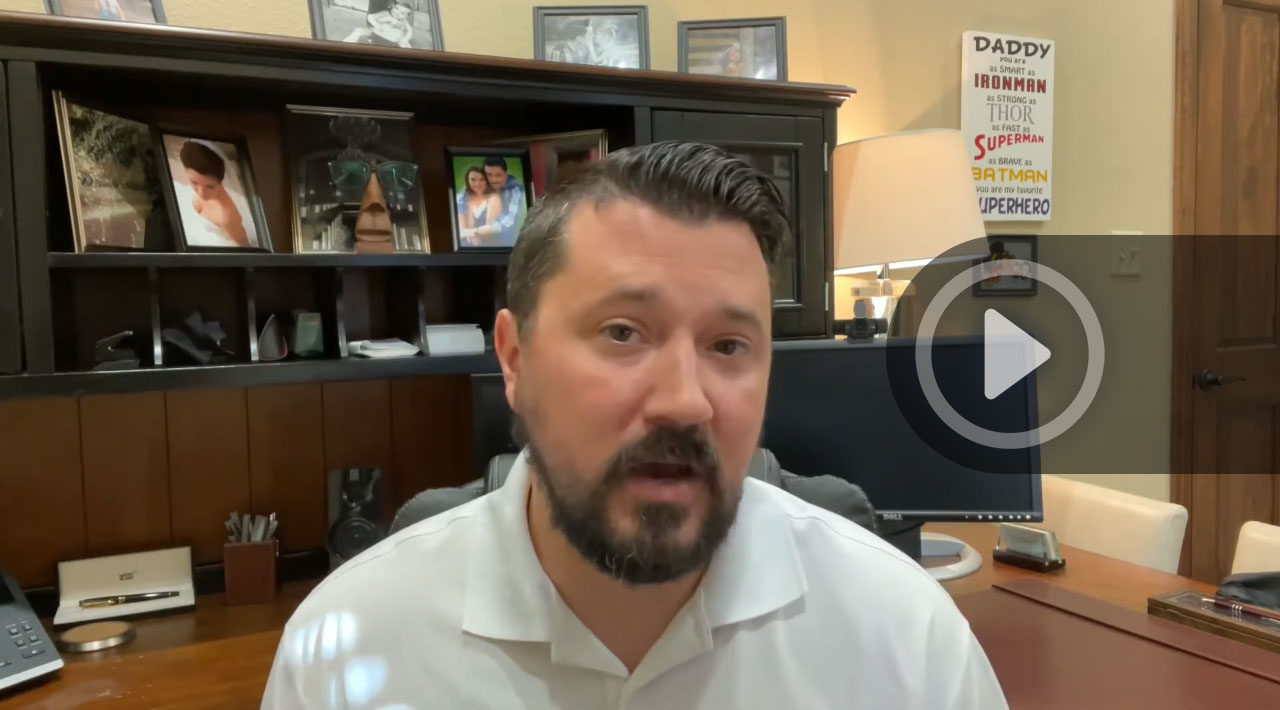A Little Bit About Bonds and Bond Conditions

Happy Friday everybody. Hope you had a great week and are gearing up for a wonderful weekend. So this week I wanted to talk to you a little bit about the bond condition side of things and how that all works because I do get this question quite often. So in Texas, once you’ve been arrested, the first thing that happens is you get brought before a magistrate court and the magistrate judge has to set a bond amount for you to posts.
Now, most people are familiar, at least kind of conceptually with what a bond is. It’s amount of money that you have to pay in order to get out of jail. But most people kind of don’t understand what that means and why that it is the way that it is. So in theory, what a bond is, is it’s an amount of money that you have to put up that the court holds that as long as you comply with all of the court’s instructions while your case is pending, as long as you show up to the court appearances, like you’re supposed to, as long as you do everything like that, then at the end of a case, that bond amount, that bond money gets returned to you.
So basically it is a security or collateral that the court is holding to make sure that you do what you’re supposed to do. Now, it doesn’t quite work that way in the real world, because if a bond amount is sufficiently high to where you don’t have the full amount to post in person, then you have to do what’s called post a surety bond. And that’s when you have to call a bondsman and ask the bondsman to post that bond on your behalf. So when that happens, normally is the bondsman will collect a percentage of that amount from you. So usually about 10 to 12%, then they will post that amount in your behalf with the court. And now the theory there is when the case is all done, when the case is over that money gets returned to the bondsman because they get that back just like you would, if you had posted it.
But the bondsman keeps the 10% that they collected from you. So that’s their fee for doing that. That’s how they make money. Okay. So if you were arrested and or somebody that you know is arrested, you really have two options. You can either post that bond in cash at which time that money remains yours, you get it back at the end of the case, or you go through a bondsman and you pay 10%. So it’s a lower amount that you have to come up with upfront, but that money’s gone. You lose that money. And then the bondsman is basically kind of your babysitter for the whole length of the case.
Now, the other thing to keep in mind when it comes to bond is courts are allowed and often do set what are called bond conditions. What those are, are those are specific rules that you must follow or things that you must do while out on bond. Okay. When a court is setting bond conditions and when they’re setting a bond amount, there are two things that the law says they must be concerned with. One, is your risk of non-appearance. So that is to say, will you flee from the jurisdiction? And two, is the safety of the community. So what the law says is that even though the court is allowed to set specific conditions for somebody that’s out on bond, any condition that they set A, must be reasonable, but B must be associated with one of those two concerns.
So a lot of times what you’ll see is the court will order that somebody is out on bond or that they have to wear an ankle monitor, a GPS locator so that the court knows where they’re at, at all times. Maybe the court will order that they install an interlock device, which is one of the breathalyzers that goes into your car to make sure that you’re not drinking when you’re driving.
And more often than not, what will happen is a client will ask me, well, how is it that the court can order me to do something when I haven’t been convicted of anything yet? Now that is true. You haven’t been. You’re innocent until proven guilty. However, the answer is because the law allows the court and the judge, and it gives them the authority to set these conditions to ensure the safety of the community, and to ensure that you will comply with court orders. And that you’ll appear when you’re supposed to. That’s why the court is allowed to do that.
So bond conditions are allowed. They are very common. However, there are mechanisms that we, or any lawyer can use to try to get rid of certain bond conditions if we think they overstep, or if we think they are unnecessary, or if they are becoming more punitive in nature, rather than protective in nature. So if there’s a specific bond condition that you have, that you take issue with, talk with your lawyer about it, and there might be some type of motion that we can file to try to get that in front of a judge and get that specific condition removed.
So anyway, just like all of my videos, this is a really broad overview. There are a whole lot of little details that I could go into that this video would be two hours long and I’m not going to. So just like always, if you have a specific question about bond in Texas or about a bond conditions in Texas, always feel free to shoot me an email, give me a call, set up a time for us to talk. I’m happy to talk to you about it and answer any questions that I can. Or probably even better is if you do have a lawyer that’s representing you on a criminal case, bring it up with them, talk to them about it because that’s something that they’d be able to explain and make sure that they clarify for you so that you get all your questions answered. Hope this helped. Hope you have a great week and a great weekend. And I look forward to seeing you all next Friday. You all stay safe.



